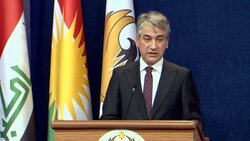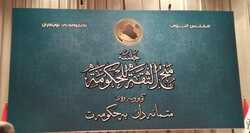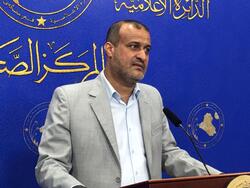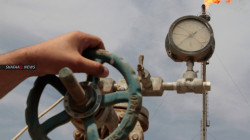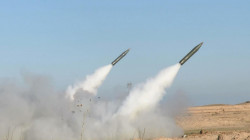Iraqi Security at Risk: the conflict between Asa'ib Ahl al-Haq and Saraya Al-Salam
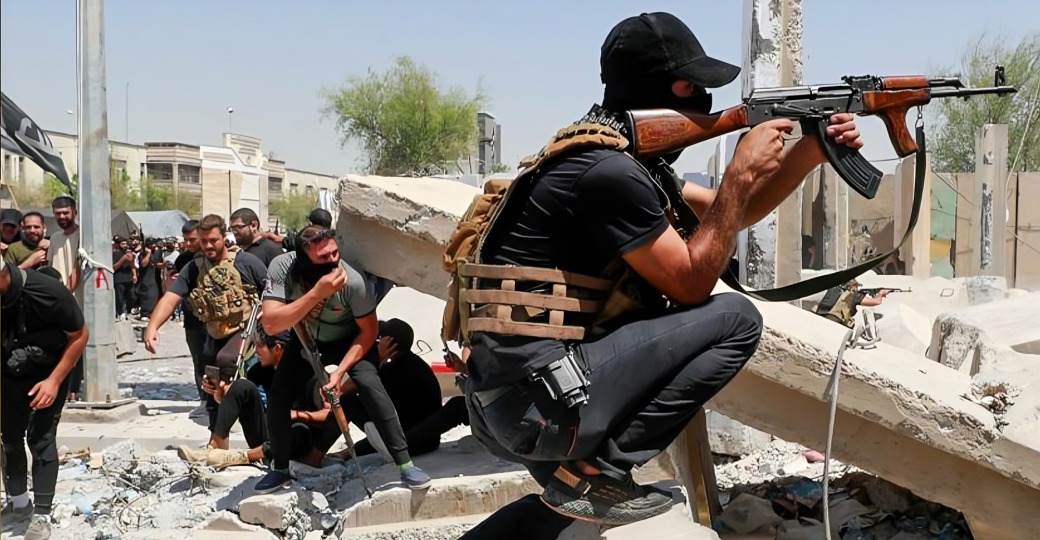
Shafaq News/ Fierce fights between rival military forces Saraya Al-Salam and Asa'ib Ahl al-Haq have occurred in several Iraqi governorates, including in Baghdad.
The Media Line shed light on the "undeclared war between Iran-backed militias in Iraq" that has escalated in recent months, with daily clashes in several governorates, including in the capital, Baghdad, killing at least 200 fighters so far, according to local news sites.
The report narrated how the clashes started on Dec. 25 in the province of Basra between the Saraya Al-Salam, affiliated with the Shiite cleric Muqtada al-Sadr, and the Asa'ib Ahl al-Haq militia, affiliated with the prominent cleric and politician Qais Khazali, who previously defected from the Muqtada al-Sadr movement.
"Sporadic clashes have also broken out between Iraqi Hizbullah and several armed militias over the past two months, most of them in areas with Shiite majorities.
During the past two weeks, Saraya Al-Salam fighters burned the headquarters of the Asa'ib Ahl al-Haq militia, and its fighters responded by burning the Saraya Al-Salam headquarters."
"The Iraqi government has not intervened in most of these clashes, the most recent of which took place in the Al-Amil neighborhood in the center of Baghdad. Several militia members were killed and local residents were injured in the incident." The report pointed out.
"Iraqis circulated a video clip on social media that documented a resident from Basra Governorate calling the Interior Ministry's emergency number, 130, to report that he could hear gunfire near his house. The emergency responder replied that the gunfire was from clashes between Saraya Al-Salam and Asa'ib Ahl al-Haq."
When the citizen asked the responder to call the police to intervene, the responder said, "We cannot intervene. Leave them for a while and they will calm down."
The report continued, "Clashes broke out again between the two militias on Tuesday evening, after members of Asa'ib Ahl al-Haq tried to hang up pictures of Abu Mahdi Al-Muhandis and Qassem Soleimani, the former commander of the Quds Force, who were killed in an American strike in January 2020. Saraya members stopped them and fighting broke out, leading to the wounding of a nearby policeman."
"These clashes were preceded by assassinations of many members and leaders of both militias, most of them in Maysan Governorate and the southern governorates."
"The clashes are taking place near my house. The windows of my house have been shattered by stray bullets several times," Hamoudi Kazem, a resident of the Al-Amil neighborhood, told The Media Line. "We cannot go out when we hear the sounds of bullets. I personally do not dare to go out in the middle of these clashes, and we know that the security forces will not be able to intervene. They have been near armed clashes several times, but they did not do anything."
Asim Al-Saadoun, a resident in Basra Governorate, told The Media Line, "Every day we hear the sounds of bullets. Some of them are clashes between armed militias, and some of them are due to tribal disputes that turn into an armed clash. The temporal forces only intervene in tribal disputes. The situation is miserable. We cannot sleep sometimes because of the sounds of bullets, and we cannot even go out if the sounds are near our homes. And the next day, when there are dead people, there are funerals, and the roads near the dead person's house are closed, and we are in real trouble."
Mohammad Ali Al-Hakim, a researcher in security and political affairs, told The Media Line, "The armed clashes that occurred between factions in Baghdad are based on political conflict and areas of influence, and this is not the first time and will not be the last. This conflict has been going on for years, and it could be renewed in any moment, especially because of the intense political conflict between the followers of Muqtada al-Sadr, other armed militias, and the ruling coordination framework in Iraq."
"These clashes confirm and indicate the government's continued failure to confine weapons to the state and that weapons remain outside its control, which constitutes a real threat to societal and civil peace and also threatens the state itself, especially since this conflict has become a tool used in political conflict and the struggle to impose influence," he said.
"If these clashes continued without any calm, they would spread to other areas in the capital and perhaps to the central and southern governorates. This armed conflict always threatens stability and may lead to civil fighting, and this matter has major and dangerous consequences for Iraq and the Iraqis."
Abdul Mahdi Al-Hamidawi, one of the leaders of the Saraya Al-Salam militia, told The Media Line, "We are helping the Iraqi security forces, we are an integral part of them, and we are not saboteurs or militias. The clashes that occur from time to time are to impose security and stability. There are groups of saboteurs carrying weapons, and we are trying to prevent them."
Speaking about the recent clashes in the Al-Amil neighborhood, Al-Hamidawi said, "A group of saboteurs tried to hang pictures of leaders who are not Iraqis. We reject that. The pictures in the streets should be of Iraqi leaders only. This is not the first attempt. They previously tried to upload these pictures and we warned them, but they did not respond, so we used force this time."
Col. Amer Al-Khalidi, a recently retired Iraqi police officer, told The Media Line, "The temporal forces generally control all governorates and regions of Iraq, but in the absence of disarmament of armed groups, such clashes will always occur. These clashes will not turn into a civil war. The army, police, federal police forces, and all Iraqi security services are ready to maintain security and stability."
Al-Khalidi added, "The government has repeatedly tried to reduce the weapons available to the Popular Mobilization Forces factions, but the issue is not only security. There are political calculations and decisions as well, but the situation is safe. Previously, these factions used to move around with their weapons and cars carrying their flags, but now the situation is different. They are staying with their weapons only inside their headquarters."
Harith Al-Hamdani, a former professor of political media, told The Media Line, "The clashes are taking place to extend influence. They are conflicts over the areas governed by these militias. These clashes will continue on an ongoing basis, especially since government support has repeatedly decreased for the Popular Mobilization Forces. Everyone is fighting to obtain more money by extending their influence over new areas."
He continued, "As for the clashes between the Saraya Al-Salam and Asa'ib Ahl al-Haq, it is because of what Muqtada al-Sadr, to whom the Saraya Al-Salam belong, considers that Qais al-Khazali, the leader of Asaib Ahl al-Haq, has turned against him, defected from him, and committed high treason against him, and therefore these clashes are part of a blood feud between them. The Iraqi government will not be able to solve this problem except after disarming the militias, which is almost impossible. The members of this government own militias, and they are the ones who put them in their chairs. We expected that the American attacks against some factions, which resulted in the killing of their leaders, would unite them, but the disagreement seems to be much greater."
